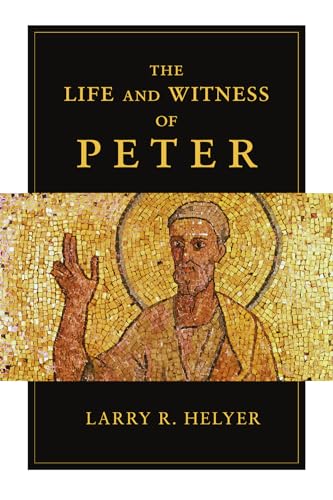The Moral Disciple: An Introduction to Christian Ethics
Written by Kent A. Van Til Reviewed By David W. JonesKent Van Til, a former missionary to Costa Rica, has been a visiting professor of religion at Hope College and has also taught at Catholic Theological Union, Kuyper College, Marquette University, and ESEPA Seminary in Costa Rica. He is the author of the widely read 2007 text Less Than Two Dollars a Day: A Christian View of World Poverty and the Free Market. A seasoned theologian and professional ethicist, Van Til is well-qualified to write this book.
As its subtitle suggests, this book is a short introduction to the field of Christian ethics. Van Til states in his opening chapter that his purpose in writing is that “by interacting with this text, [the reader] will become more clear about and conscious of . . . moral life” (p. 7). He aims to achieve this broad goal by presenting his material in three main sections that constitute the ten chapters of The Moral Disciple. Structurally speaking, after presenting some introductory and foundational material in the first two chapters, Van Til’s three main sections are: Character (chs. 3–5), Norms (chs. 6–8), and Consequences (chs. 9–10). Taken together, these ten chapters cover Van Til’s understanding of the basic elements of a system of Christian ethics.
There is much to commend about The Moral Disciple. As readers of his earlier work can testify, Van Til’s writing style is very simple and basic, making the text easy to read. Van Til explains difficult and complex issues in such a way as to make them understandable even by those unfamiliar with the field. This book also includes a number of charts, as well as case studies in the margins that illustrate the concepts and principles Van Til presents. Each chapter also contains study questions and a “For Further Reading” section at its conclusion. Additionally, the publisher includeds a comprehensive index that is helpful even in a book of such short length.
The above benefits notwithstanding, there are several drawbacks of The Moral Disciple of which readers ought to be aware. One such critique is the overly general and moderate style and content of this book. One gets the idea that Van Til is trying not to offend any readers as he writes. While this is a commendable goal, it is possible to be so general in one’s writing that one fails to communicate anything specific. This approach leads Van Til to mention fringe theologies (e.g., liberation theology, feminist theology), alternative religions (e.g., Islam, Hinduism), and clearly extra-biblical ideas (e.g., the distinction between venial and mortal sins) in such a way that leaves the reader wondering if Van Til is for or against such concepts. Moreover, some of Van Til’s teachings are troubling, at least at first glance. For example, “good and evil is quite relative” (p. 10); “the Bible is not always a clear moral map” (p. 18); and “in the Bible, moral norms . . . develop over time” (p. 19). Of course, readers should read these statements in the context of the book itself, yet they are representative of the generalist, moderate, and at times perplexing teachings throughout the book.
One final area of critique is Van Til’s understanding of the three parts of morality. As his three major sections reveal, he identifies the three basic parts of morality to be character, norms, and consequences. A potential issue with this rubric is Van Til’s identification of consequences as a normative part of Christian ethics. While most ethicists would agree with Van Til’s teachings on character and norms, historically Protestants have viewed the third component of a moral equation to be teleological in orientation, not consequential. Van Til’s replacement of teleology (i.e., goals) with consequences (i.e., utility) leads him to endorse a Christianized greater good utilitarianism. Despite Van Til’s attempt to rescue utilitarianism with nuance, his ideas here seem to fall outside historically orthodox, Protestant ethics.
The above critiques notwithstanding, The Moral Disciple is a helpful book. While conservative evangelicals may disagree with aspects of this book—such as the endorsement of the preferential option for the poor, the use of the generic “she,” and a developmental view of conscience, among others—reading this book is time well spent.
David W. Jones
David W. Jones
Southeastern Baptist Theological Seminary
Wake Forest, North Carolina, USA
Other Articles in this Issue
Carl Ferdinand Howard Henry (1913–2003) was an American theologian in the conservative evangelical tradition...
Will everyone one day be saved? Is hell only temporary, if it exists at all? If the answer is yes to either of these questions, the historic Christian commitment to the conversion of the world to Christ would appear to be somewhat silly...
People rightly note the way Christians in English-speaking Western culture have moved in a generation from being ‘moral majority’ to ‘immoral minority’...
In recent years a number of stances have arisen that have set themselves over against traditional evangelicalism and traditional Reformed thought, not a few of them arguing, in part, on the basis of a particular understanding of the kingdom...
Abounding in the Work of the Lord (1 Cor 15:58): Everything We Do as Christians or Specific Gospel Work?
by Peter OrrOne of the deepest impacts of the Reformation on Western Culture arose from the robust rearticulation of the biblical doctrines of creation and vocation...







